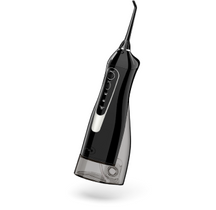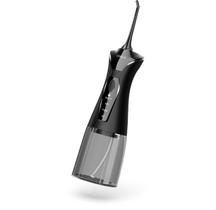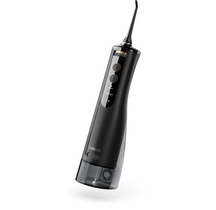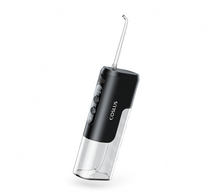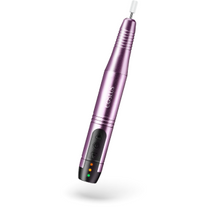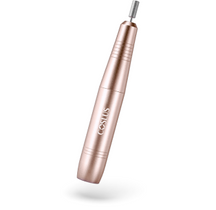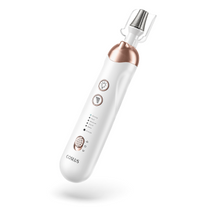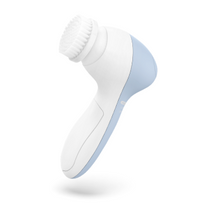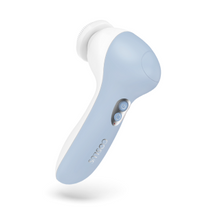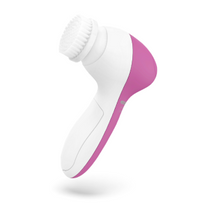
How to Get Rid of Bad Breath: Causes and Solutions
Ever catch yourself covering your mouth when you talk? You're not alone - bad breath hits most of us at some point, and it's honestly one of those things that can really mess with your confidence. The thing is, bad breath causes aren't always obvious, and sometimes what you think is just "morning breath" could actually be something that needs a bit more attention. Good news though - getting rid of bad breath is way easier than you might think once you know what's actually causing it.
What Actually Happens in Your Mouth When Bad Breath Strikes?
Ever wondered what's really going on inside your mouth when your breath starts to smell? It's actually a pretty fascinating (and gross) process that happens to everyone. Your mouth is like a warm, moist environment that's perfect for bacteria to thrive - and when they do their thing, that's when the smell starts.
Your Mouth is Full of Bacteria (And That's Normal)
Your mouth naturally contains billions of bacteria - most of them are completely harmless and actually help keep your mouth healthy. But here's the thing: these bacteria need to eat, and they love feeding on leftover food particles, dead skin cells, and proteins in your saliva. When they break down these materials, they produce waste products that smell terrible - specifically sulfur compounds that give off that classic "rotten egg" smell.
Why Some Bad Breath Goes Away and Some Doesn't
There's a huge difference between temporary bad breath and chronic halitosis. Temporary bad breath usually comes from specific foods (like garlic or onions), drinks (like coffee), or just normal stuff like morning breath. This type goes away pretty quickly once you brush your teeth or the food gets out of your system. Chronic bad breath, on the other hand, sticks around no matter what you do. This happens when bacteria have really made themselves at home in your mouth, often because of poor oral hygiene, gum disease, or dry mouth conditions.
When Bad Breath Means Something More Serious
Sometimes persistent bad breath isn't just about what's happening in your mouth - it can be a sign that something else is going on with your health. Conditions like diabetes, kidney disease, liver problems, or acid reflux can all cause halitosis symptoms that won't budge with regular brushing and mouthwash. If your bad breath won't go away despite good oral care habits, it's definitely worth talking to a doctor or dentist about it.
What Are the Main Causes of Bad Breath?
Bad breath doesn't just happen out of nowhere - there's always a reason behind it. Some causes are pretty obvious (like eating too much garlic), while others might surprise you.
- You Don't Brush and Floss Enough: Not brushing and flossing regularly is the top cause of bad breath. Food particles get stuck between your teeth and rot. Plaque builds up on your teeth, creating a perfect place for smelly bacteria to grow and multiply.
- You Eat Strong Foods Like Garlic and Onions: Garlic, onions, coffee, and alcohol get into your bloodstream and travel to your lungs. You breathe out these smells for hours or even a full day. That's why brushing your teeth after eating garlic doesn't always help.
- Your Mouth is Too Dry: Saliva washes away food particles and neutralizes acids in your mouth. When you don't make enough saliva, bacteria multiply quickly. This happens as you age or from medications like antihistamines, antidepressants, or blood pressure pills.
- You Have Gum Problems or Cavities: Gum disease creates pockets where bacteria hide and multiply. Cavities are bacterial breeding grounds that are hard to clean. Even with regular brushing, these areas keep producing bad smells.
- Tongue is Dirty: Your tongue can hold lots of bacteria, especially when it gets coated with a white or yellow film. Some tongue conditions create more places for bacteria to build up and cause bad breath.
- You Have a Health Condition: Diabetes makes breath smell fruity or like acetone. Kidney disease causes fishy or ammonia-like breath. Liver problems create a musty smell. Acid reflux brings stomach acids into your mouth, making breath smell sour.
- You Smoke or Chew Tobacco: Smoking makes your breath smell like an ashtray and dries out your mouth. It also increases your risk of gum disease. Tobacco products leave smelly residue in your mouth for hours.
- You're Not Eating Enough Carbs: When you eat very few carbs or fast, your body burns fat for energy. This creates chemicals called ketones that make your breath smell fruity or metallic. It's called "keto breath" and it's normal but noticeable.
7 Instant Solutions: Quick Bad Breath Fixes
If you need to get fresh breath quickly, there are a number of things you can do that really work, not just mask the issue temporarily. These quick remedies will make you feel more confident when you're around other people while you're addressing any underlying problems that may be contributing to your bad breath.
1. Brush Your Teeth the Right Way
Everyone believes they're brushing correctly, but really, they're speeding through the process. The magical number is two minutes - that's what it takes to adequately clean all surfaces of your teeth. Gentle circular motions work better than scrubbing back and forth, and be sure to brush along the gum line where the bacteria like to lurk. An electric toothbrush makes this simpler and more efficient.
2. Floss Like You Mean It
Flossing is not only about removing food from between your teeth - it's about removing bacteria and plaque that your toothbrush cannot. By flossing, you are cleaning approximately 35% of your tooth surface area that brushing doesn't cover. Be sure to go beneath the gum line and to use a clean part of the floss for each tooth. For those who find traditional flossing challenging, a water flosser can effectively reach these difficult areas with pressurized water.
3. Scrape Your Tongue Daily
Your tongue can harbor a lot of bacteria, particularly at the back. You can use a tongue scraper (or even your toothbrush) to remove this accumulation and make a big difference in your breath. Begin at the back of your tongue and scrape forward gently. You'll be amazed how much comes off, and your breath will smell significantly cleaner.
4. Choose the Right Mouthwash
Not all mouthwashes are equal. Seek out those that include antibacterial ingredients such as cetylpyridinium chloride or chlorhexidine. If you have dry mouth, avoid mouthwashes that contain alcohol because they will only exacerbate the issue. Swish for a minimum of 30 seconds to receive the full benefit.
5. Chew Sugar-Free Gum that contains Xylitol
Sugar-free gum does more than simply cover up bad breath - it stimulates the production of saliva, which rinses bacteria and food particles away. Gums that include xylitol are particularly effective because xylitol actually works to combat the bacteria that are responsible for bad breath and tooth decay.
6. Drink Water Throughout the Day
Drinking water during the day keeps your mouth wet and washes away bacteria and food particles. If you're suffering from dry mouth all the time, keep a water bottle with you and sip often. This habit can greatly improve the way your breath smells.
7. Have Emergency Breath Fresheners Ready
For those "oh no" moments, carry sugar-free mints, breath strips, or travel-size mouthwash in your purse or car. They won't correct the underlying issue, but they'll provide confidence when you need it most.
How to Prevent Bad Breath for Good
Fast solutions are perfect when you need them, but if you wish to cure bad breath for good, you have to think long-term. The good news is that a majority of bad breath issues could be avoided with the proper habits and lifestyle adjustments. Here is how you can keep your breath fresh on a daily basis.
1. Establish Your Twice-Daily Brushing and Once-Daily Flossing Habit: Brush for two minutes in the morning and before bedtime. Floss daily to dislodge trapped food between your teeth. Rinse with an antibacterial mouthwash after brushing. Select a fluoride toothpaste, and if you have issues with bad breath, choose one that contains antibacterial properties. Electric toothbrushes are more effective at plaque removal than manual toothbrushes, but use them with good technique.
2. Get Regular Dental Cleanings: Have professional cleanings every six months. Your dentist will remove plaque and tartar that you can't reach at home and catch early signs of gum disease. If you already have gum disease, inquire about deeper cleanings or treatments. For advanced gum issues, you may need to visit a periodontist.
3. Select the Appropriate Foods: Apples, carrots, and other crunchy fruits that scrape your teeth clean are good to eat. Take yogurt with live cultures in your diet to minimize bad breath bacteria. Consume green tea, which has compounds that battle mouth bacteria. Avoid garlic, onions, and sugary foods, particularly later in the day.
4. Alter Your Daily Habits: If you're a smoker, try to quit - there are numerous resources and support groups to help you. Exercise, meditate, or practice improved sleeping habits to control stress. Sip water during the day to keep your mouth moist and rinse away bacteria.
5. Control Your Health Conditions: If you have diabetes, collaborate with your doctor to maintain stable blood sugar levels. For acid reflux, follow your doctor's treatment strategy to keep stomach acid from flowing into your mouth. Discuss changing medicines with your doctor if yours produces dry mouth as a side effect.
When Should You See a Doctor or Dentist About Bad Breath?
Sometimes bad breath isn't something you can fix on your own. If you've been doing everything right with your oral care but still have persistent bad breath, it might be time to get professional help. Here are the clear signs that mean you should make an appointment.
- Bad breath lasts more than two weeks despite good oral hygiene. When brushing, flossing, and mouthwash aren't solving the problem, there's likely something else going on.
- Bleeding gums along with bad breath. This combination usually means gum disease that needs professional treatment.
- Tooth pain, swollen gums, or mouth sores with bad breath. These symptoms together often point to infections or other dental problems.
- Your dentist can't find a dental cause for your chronic bad breath. Medical conditions like diabetes, kidney disease, or acid reflux might be the real problem.
- Bad breath comes with fever, difficulty swallowing, or severe dry mouth. These can be signs of serious health problems that need quick attention.
During your visit, expect questions about your daily routine, diet, medications, and health history. Your dentist or doctor might examine your mouth, take X-rays, or order tests to find the root cause of your halitosis.
Beat Bad Breath for Good: What Really Works
Bad breath happens to everyone, but it doesn't have to stick around and ruin your confidence. The truth is, most bad breath problems can be solved with better oral care habits and addressing any underlying issues. Try the simple fixes first, but don't ignore persistent bad breath - it could be your body telling you something important. Take control of your breath today instead of just covering it up with mints, and you'll feel so much better in every conversation.


